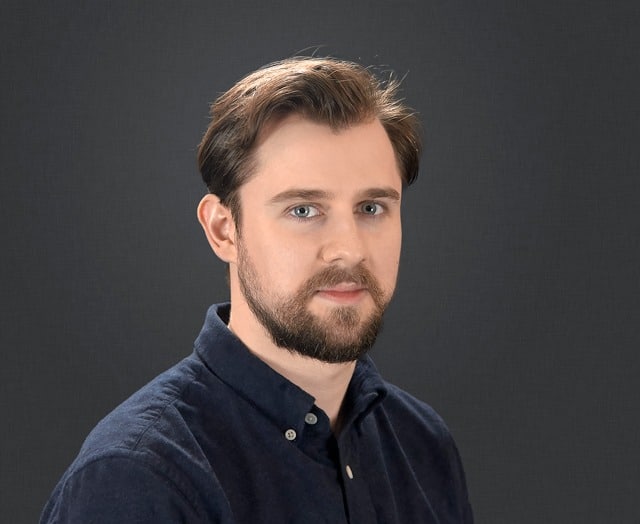Welcome to the fourth installment in our Language Connections employee spotlight interview series! We’ll be talking to employees about their experiences working at this language service provider, their passions for localization, translation, and interpreting services. This month, we’re featuring our Translation Project Manager, Simon Goodwin. Read more about how he went from intern to full-time employee at this language service provider, and juggles translation services projects at Language Connections!
Professional Language Service Provider in Boston
LC: Please introduce yourself to our readers.
I was born and raised in the south-east of England. I was lucky enough to attend a small high school with a 1400-year-old library – the very same school that housed the revolutionary Thomas Paine. After graduating from the University of Kent with a degree in Linguistics, I worked in London as an editor to a number of small online magazines. My passions outside of work are: backpacking, 60s-influenced music, and reading books I don’t quite understand… yet.
LC: How did you come to work at Language Connections? How did you transition from an internship into a full-time position?
I responded to an internship opportunity while searching for linguistics-related jobs in project management. After my first conversation with Leo, I knew that Language Connections was a company I wanted to be a part of.
Working alongside such an amazing team made transitioning into a full-time position possible. Keeping your eyes and ears open at all times gives great advantage; learning from your mistakes; never saying ‘no’ to a challenge; turning up early every day and having a genuine interest and passion for the growth of the business will certainly put you in a strong position.
LC: Is there a difference between American and British English?
There are many significant differences between the two, the most apparent being household vocabulary. Real-life context usually helps to avoid confusion; however, I have found myself asking for a plaster (band aid) in a pharmacy, only to be met with a confused pharmacist saying, “…pasta?”
Beyond differences in vocabulary, few people realize the level at which spelling in British English is quite different from American English. Of course, Americans have replaced many s’s with z’s (e.g. finalize), but, they have also swapped re’s to er’s (e.g. centre becomes center) and removed l’s, like ‘traveling’ or ‘fueled’, which are ‘travelling’ and ‘fuelled’ in British English.
LC: Do you think machine translation will replace human translation in the future?
As it stands, although impressive, machine translation introduces subtle errors when translating even the simplest of sentences; and very few sentences in the real word are simple. For example, computers will cut honorific terms (e.g., ‘vous’/‘tu’ in French) down to their most basic form (‘you’, in this example). Different cultures have their own well-established, shared expectations; Google translate will not take these into account, let alone accommodate them on individual circumstances.
Translation is more than matching words to their respective concepts; you need to have a native, cultural understanding of subtext, innuendo, group identity, nuance, etc. to translate effectively. Human translation exercises a fundamental theory of mind; understanding, as a human being, the individual intentions of the speaker/listener.
LC: Do you think there’s such a thing as an accurate translation?
In document translation services, accuracy is earned. As a project manager, it’s important that I keep a consistent and concise dialogue with both the linguists and the clients.
We hand-pick our linguists based on their subject matter expertise and by their experience. By asking our clients the right questions, we can provide the necessary information to the translators, ensuring that they will most accurately convey the purpose of the text to the target readership.
LC: What’s your favorite book?
Desmond Morris – The Naked Ape. Still controversial; still relevant.
LC: What languages do you speak/want to learn?
I can speak/understand what you might call “tourist-level” Italian, Spanish, French, and German. I have been learning Russian since working alongside my Russian colleagues.
About Language Connections:
Language Connections is one of the top language service companies in the US. Over the last 30 years, we’ve focused on providing the best business translation services, interpreting services, as well as interpreter training and customized language training programs. In addition to top-tier corporate language training, we offer certified corporate interpreters and professional business translation services in 200+ languages. Our network includes linguists with backgrounds in all major industries. They’re ready to meet your needs, whether they’re for technical translation services, legal translation, government translation services, international development translation services, education translation services, life sciences translation, or something else. Reach out to us today for a free quote on our cost-efficient and timely translation services, interpreters, or other linguistic services.
Language Connections Inc.
2001 Beacon Street, Suite 105,
Boston, MA 02135
Phone: +1-617-731-3510
Email: service@languageconnections.com


